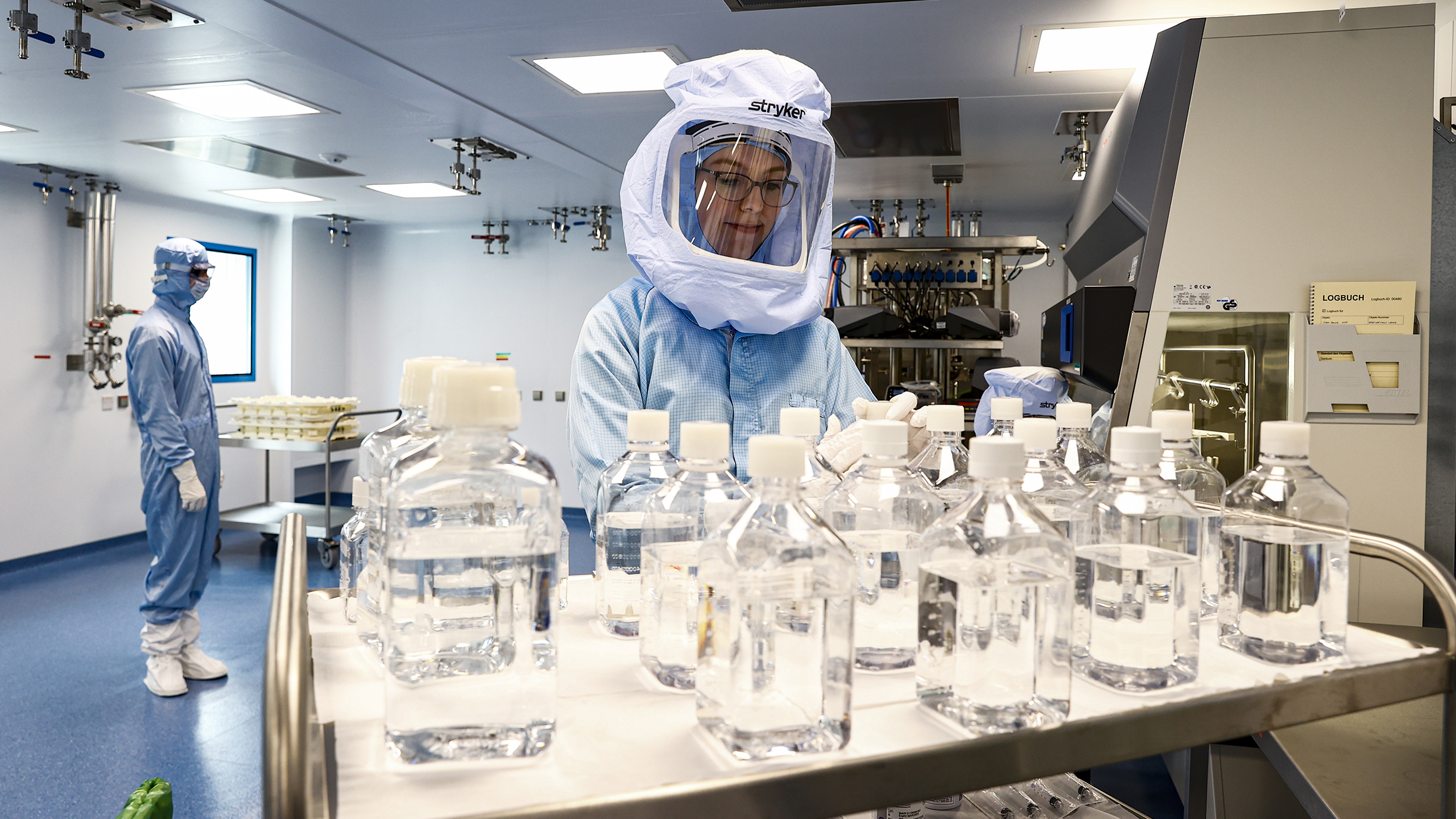Dr. Fauci: ‘Good chance’ we have COVID-19 vaccine by end of 2020

Photo by Drew Angerer/Getty Images
- Dr. Anthony Fauci, director of the National Institute of Allergy and Infectious Diseases, made the remarks on April 27 while speaking to CNN.
- There are currently ten COVID-19 vaccines in clinical trials, according to the World Health Organization.
- A new report warns that people who refuse to get vaccinated could jeopardize the success of a COVID-19 vaccine.
The U.S. could have a vaccine for COVID-19 by the end of 2020, Dr. Anthony Fauci, director of the National Institute of Allergy and Infectious Diseases, told CNN on Wednesday.
“We have a good chance—if all the things fall in the right place—that we might have a vaccine that would be deployable by the end of the year, by November-December,” Fauci said.
This would be a best-case scenario. Currently, more than 100 vaccines are being developed worldwide, and making one available in under a year would be a record achievement. After all, the quickest a vaccine has ever been approved is four years. That was the mumps vaccine in the 1960s. Fauci added that a second wave of the virus is “not inevitable” if people continue to follow guidelines and self-isolate.
Moderna Therapeutics, a U.S. biotech company, is developing one of the most promising COVID-19 vaccines. The Food and Drug Administration has already fast-tracked the approval process for the company’s mRNA-1273 vaccine, which showed positive results this week in an early clinical trial led by the National Institute of Allergy and Infectious Diseases (NIAID).
Dr. Fauci: Second wave isn’t inevitable if we do thisyoutu.be
But there are concerns. One patient in a clinical trial on the Moderna vaccine developed a fever of 103 degrees, and he later fainted at his home, according to a Stat News report. It’s worth noting that the patient was taking high doses of the vaccine, and there are many negative side-effects that would likely be considered acceptable risks of a COVID-19 vaccine.
Other research groups whose vaccines are undergoing clinical trials include the University of Oxford, CanSino Biological Inc., Pfizer, and seven others, according to the World Health Organization. But despite the worldwide push to develop a vaccine, there’s no guarantee researchers will produce one in 2020.
Dr. Scott Gottlieb, former commissioner of the F.D.A., told CNBC:
“I think we’ll have to have one more cycle of this virus in the fall, heading into the winter, before we get to a vaccine,” Gottlieb said on “Squawk Box.” “I really think a vaccine is probably a 2021 event, in terms of having wide availability of a vaccine for the general population.”
But even a perfect vaccine won’t do much good if people don’t get vaccinated. That’s because vaccines don’t work on all people. For example, vaccines aren’t as effective for the elderly, and people with certain pre-existing conditions can’t be vaccinated.
As such, the safety of these vulnerable groups depends on the rest of society getting vaccinated, and not spreading the virus. This results in herd immunity.
A new analysis published in JAMA warns that society might not be able to extinguish the virus if more than 10 percent of the population refuses to get vaccinated. Noting that vaccine skeptics are likely to be a problem, the authors suggest starting public-health campaigns as early as possible. More broadly, they suggest four approaches to maximize vaccine uptake:
- First, a COVID-19 vaccine should rapidly be delivered to the public as soon as rigorous testing has been completed, and efficacy and safety have been established. The vaccine should be equitably and justly distributed, particularly targeting individuals at highest risk for complications and disease transmission to others if initial vaccine supply does not meet demand.
- Second, the plan for a COVID-19 mass vaccination program should proactively address known potential obstacles to vaccine acceptance using linguistically and culturally competent messaging.
- Third, public health officials should develop a robust COVID-19 vaccine educational campaign harnessing traditional and social media, with a particular focus on involving social influencers and targeting misinformation.
- Fourth, frontline health care workers should be taught how to make strong recommendations for COVID-19 vaccination, including, if relevant, sharing their personal experiences with COVID-19 and the vaccine.





